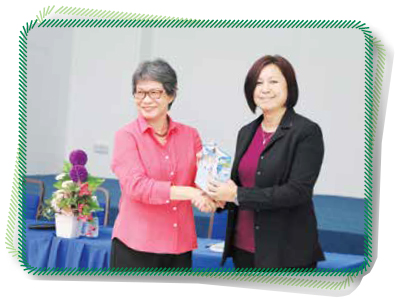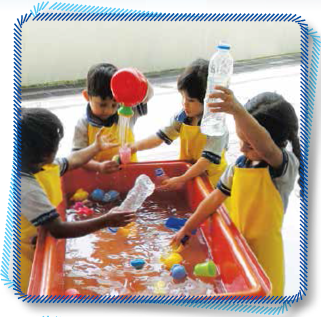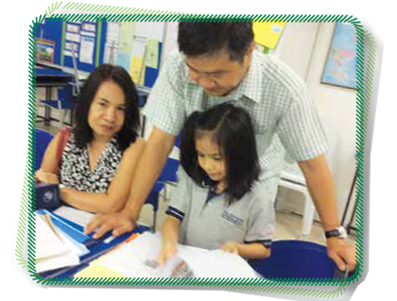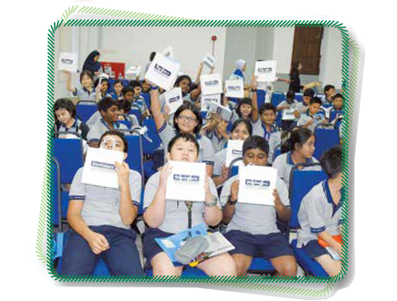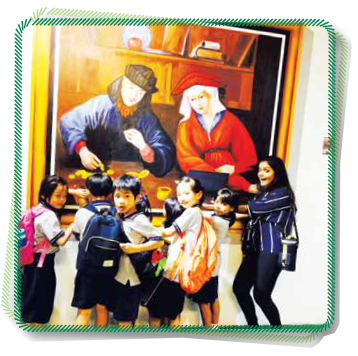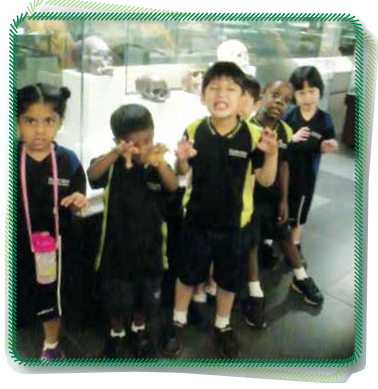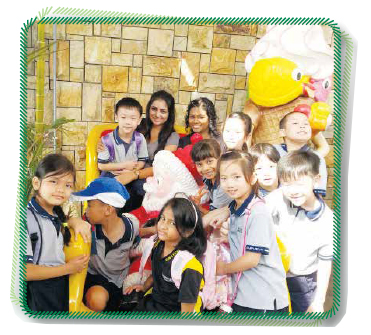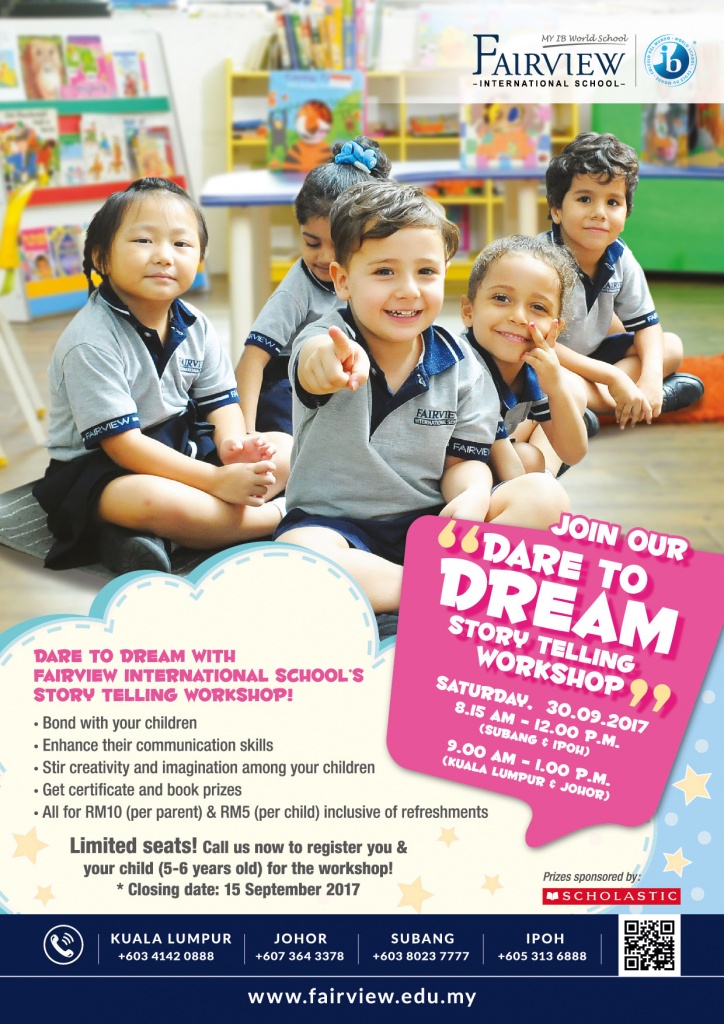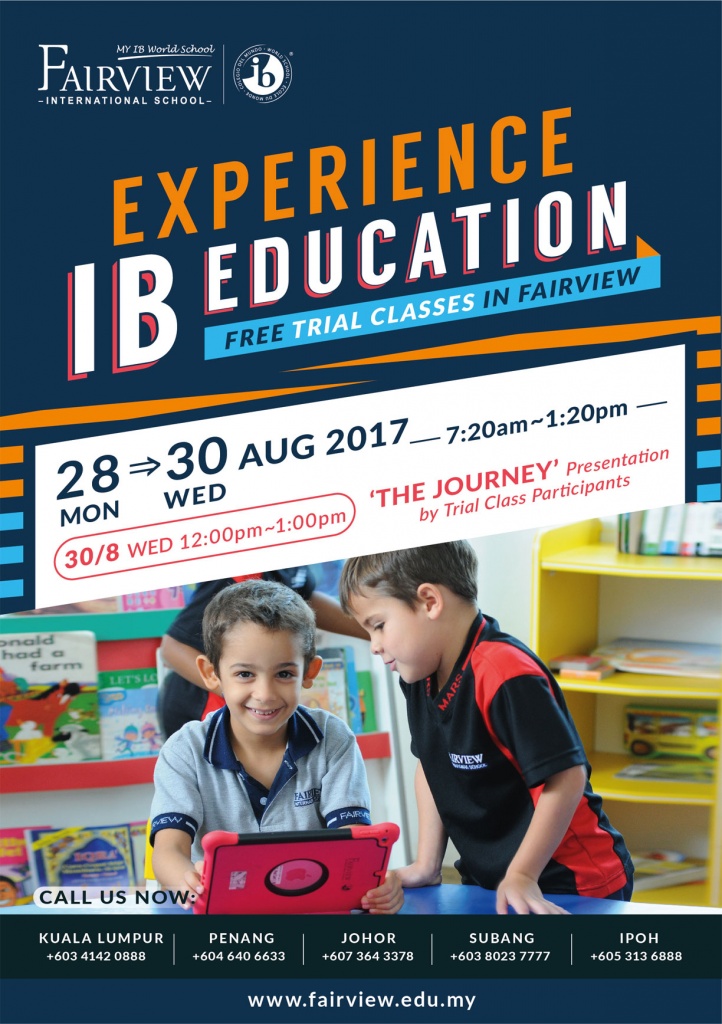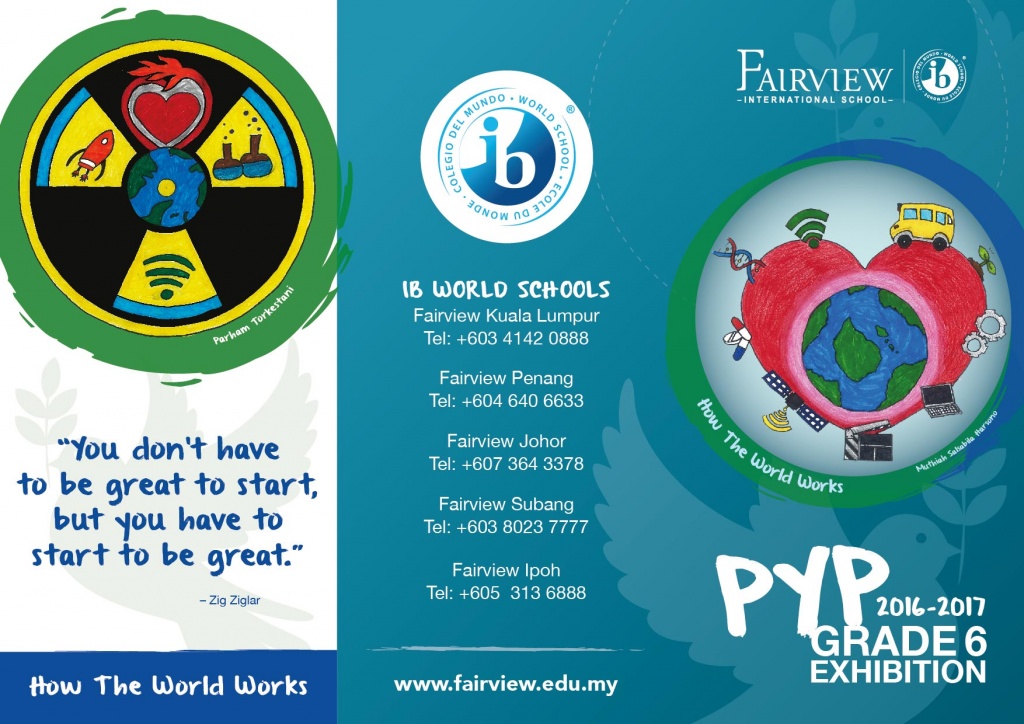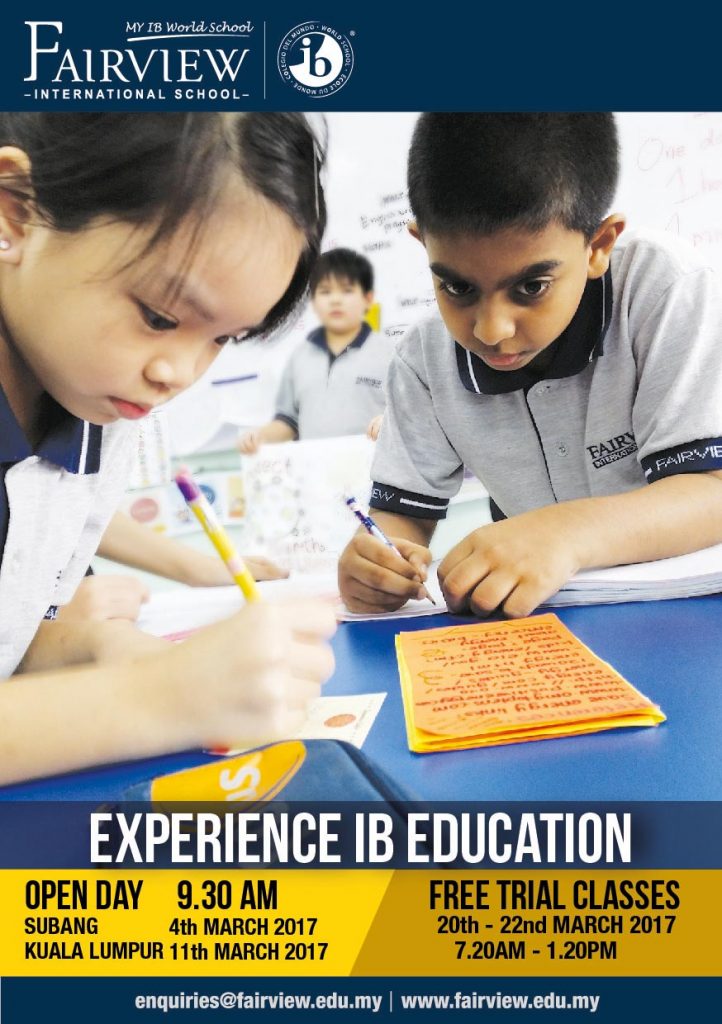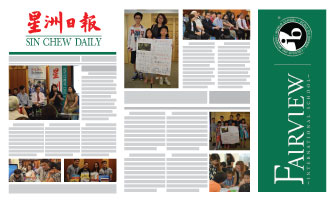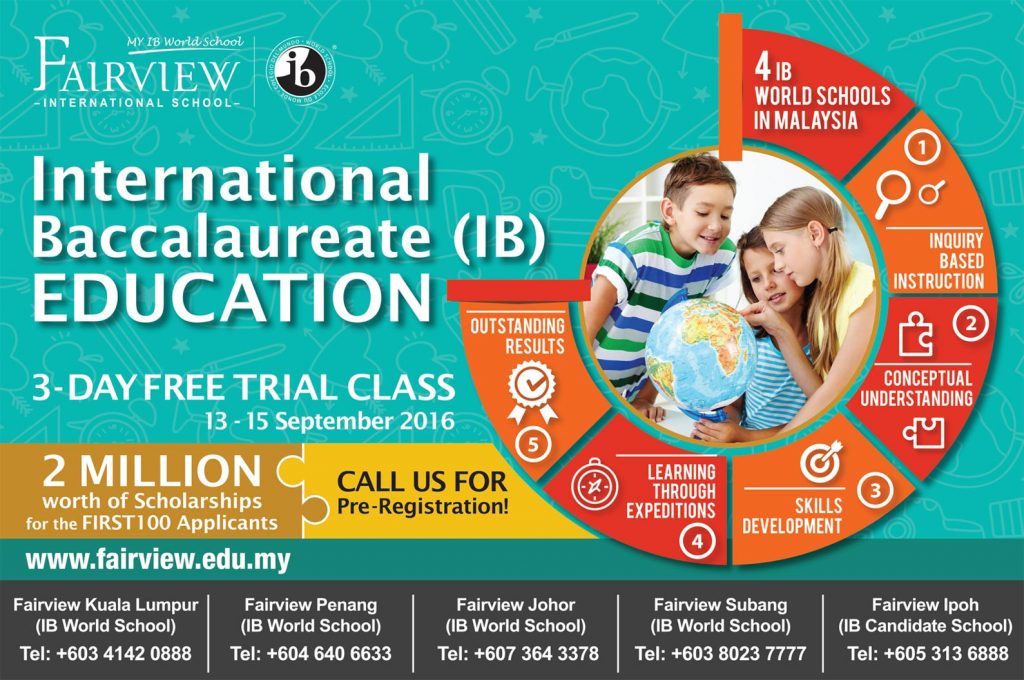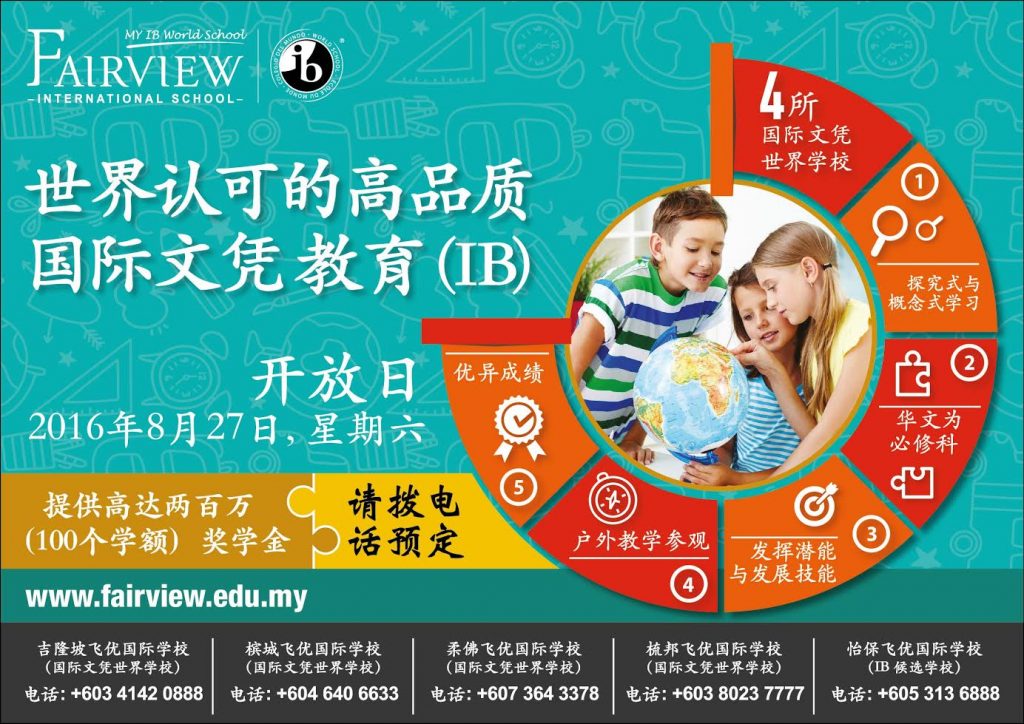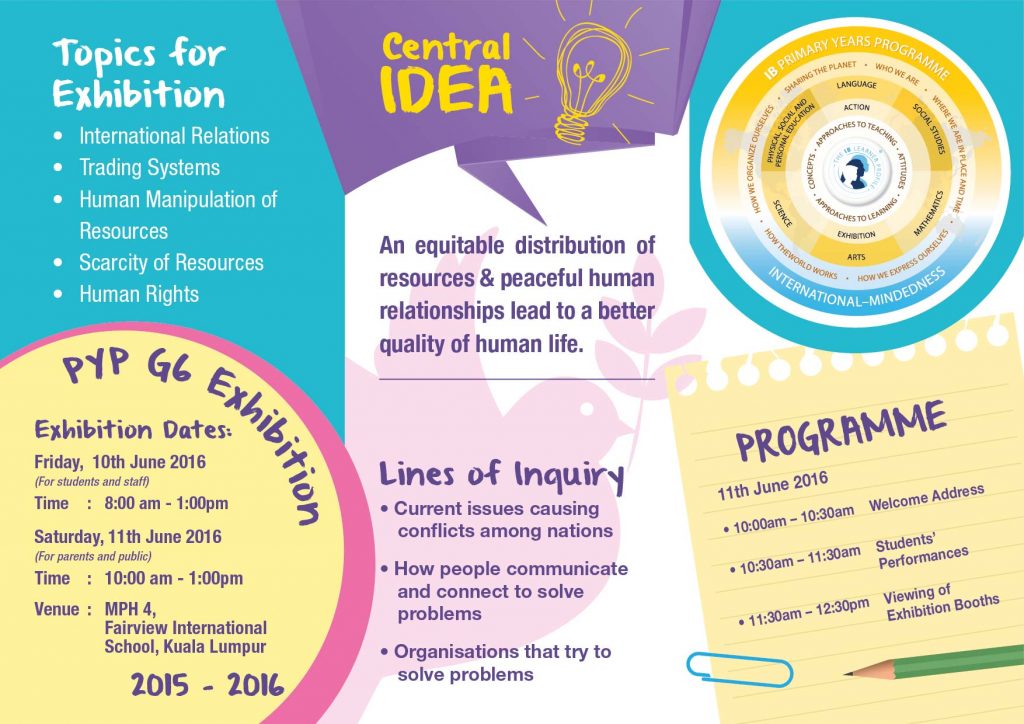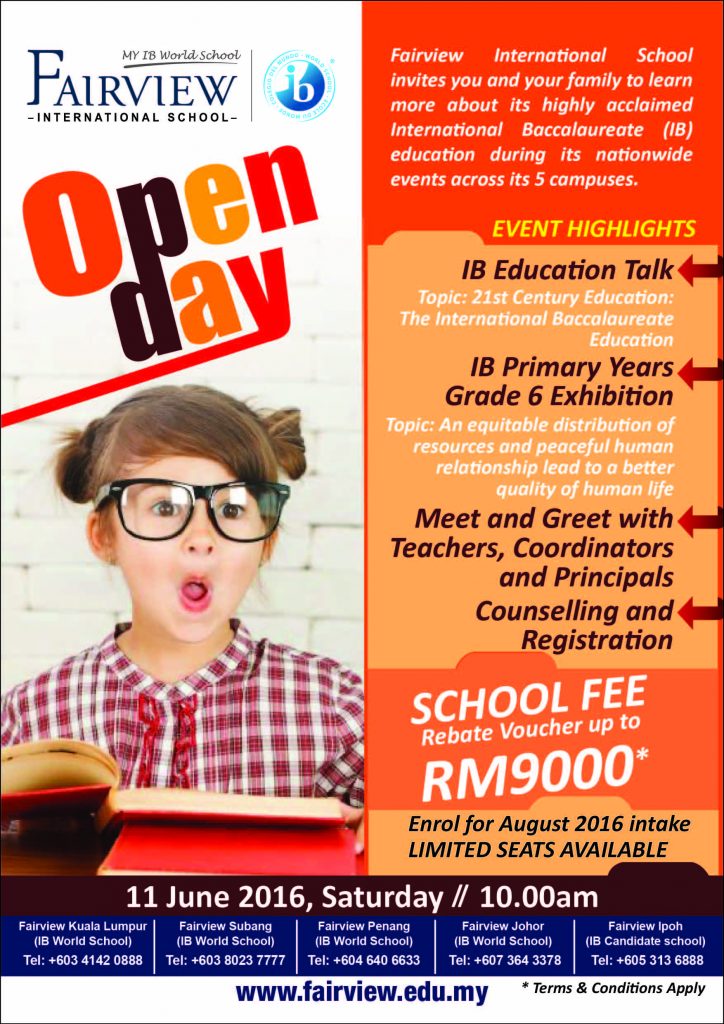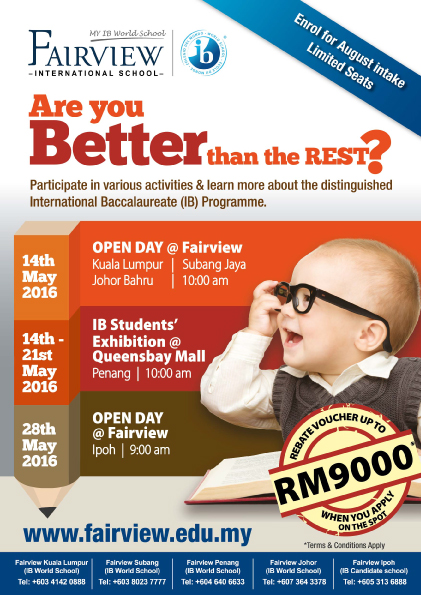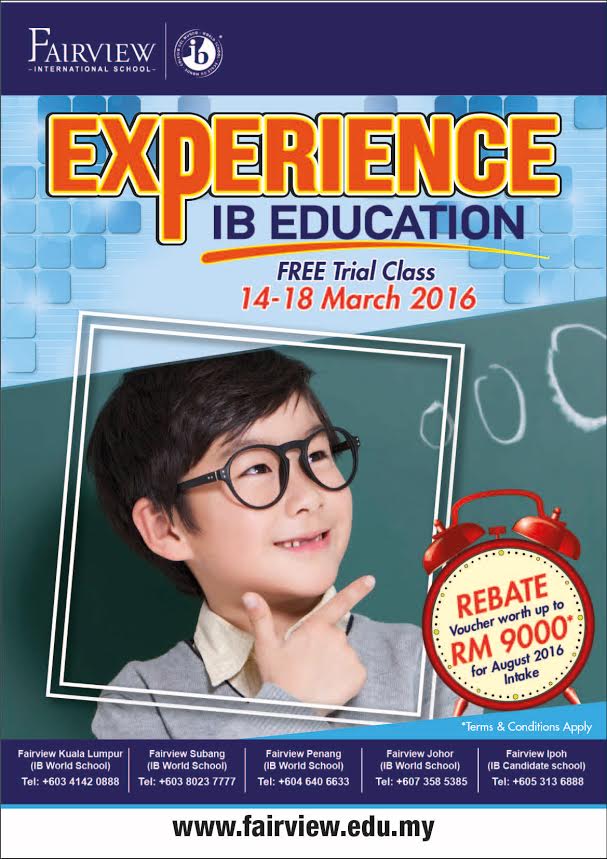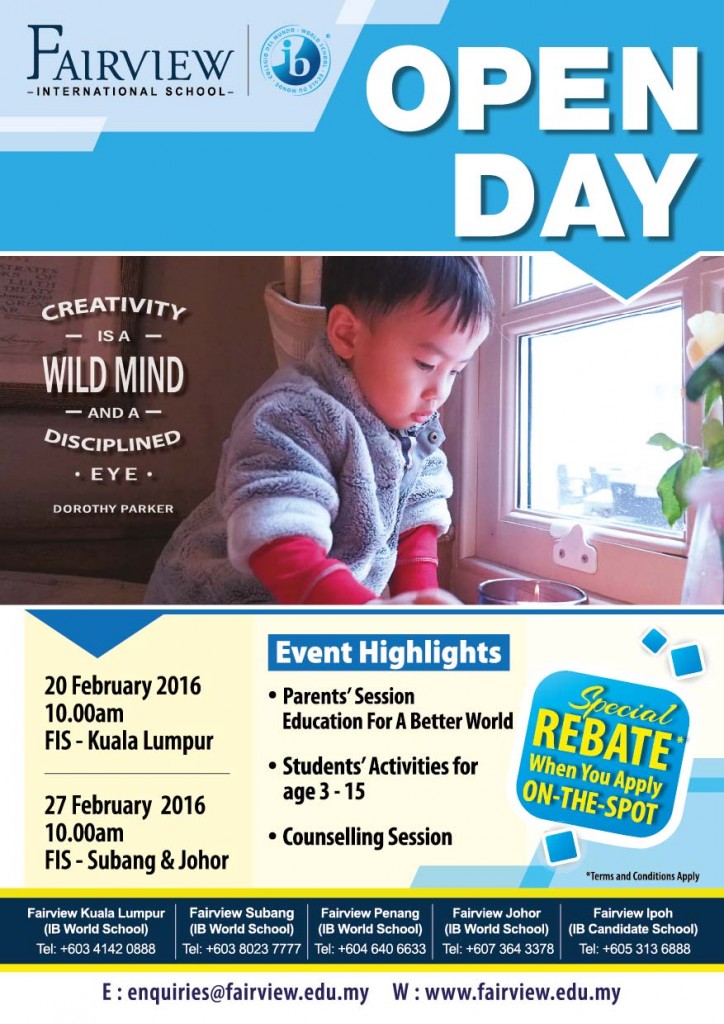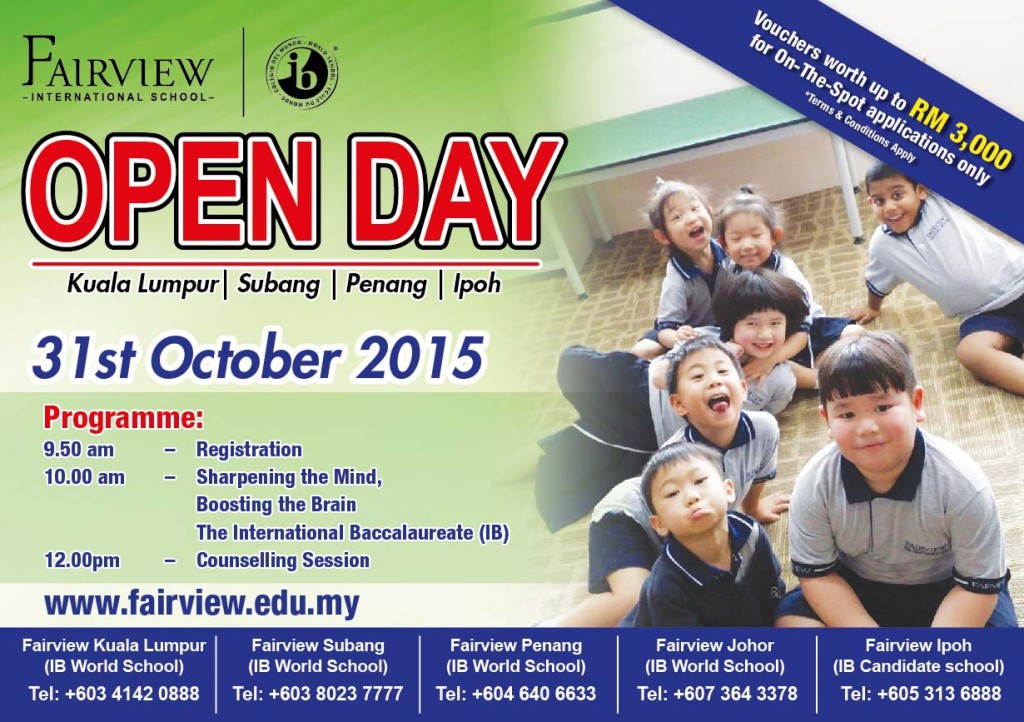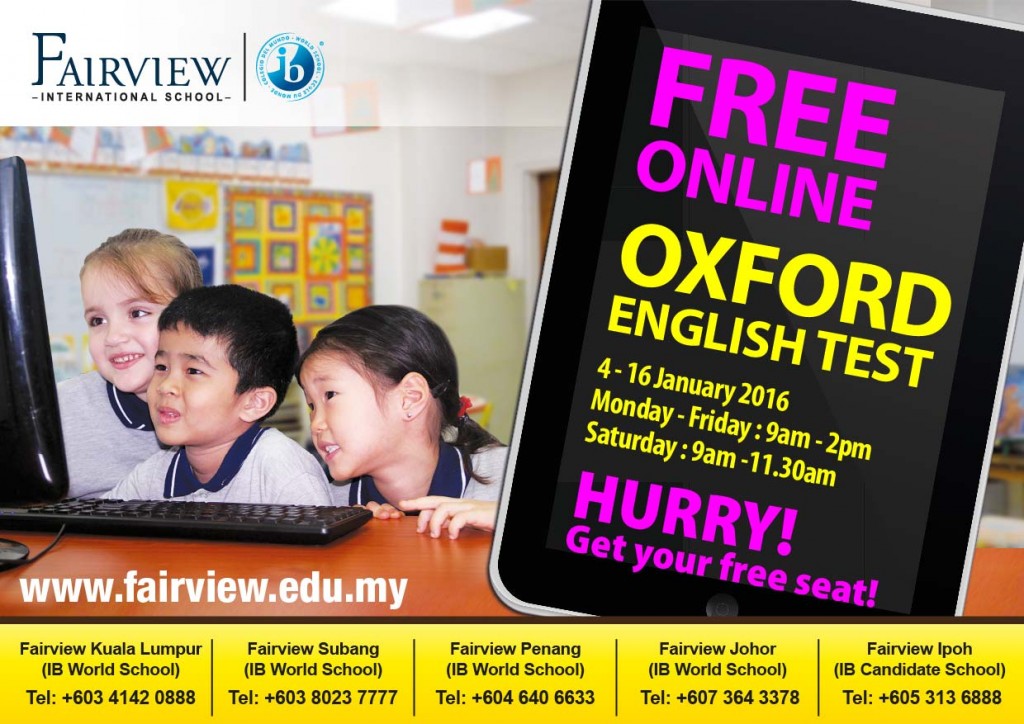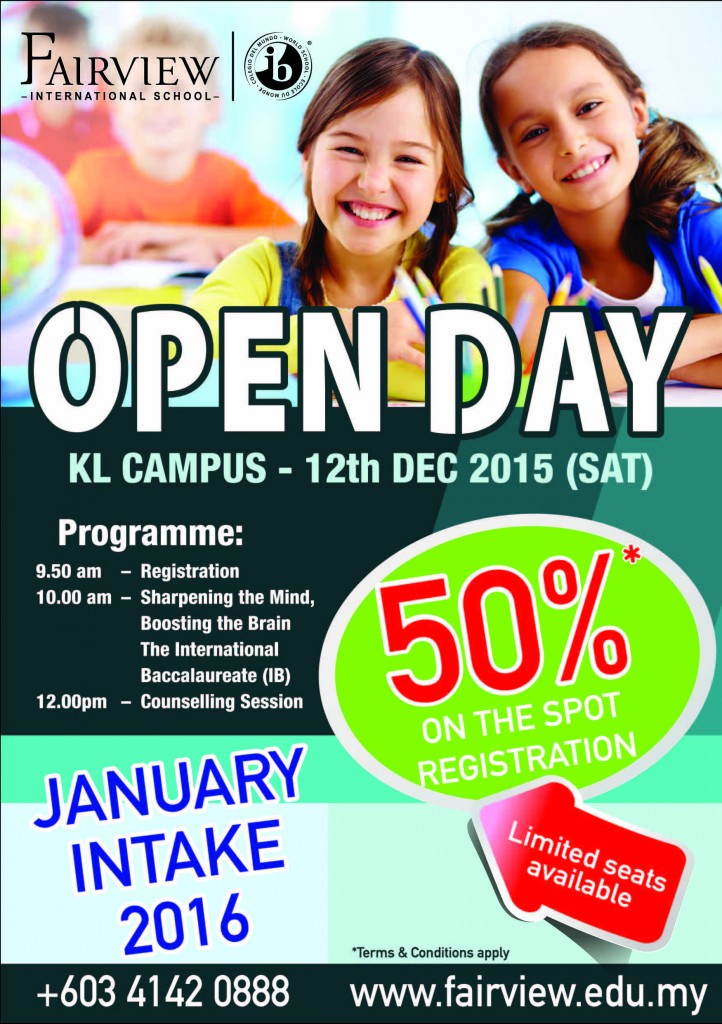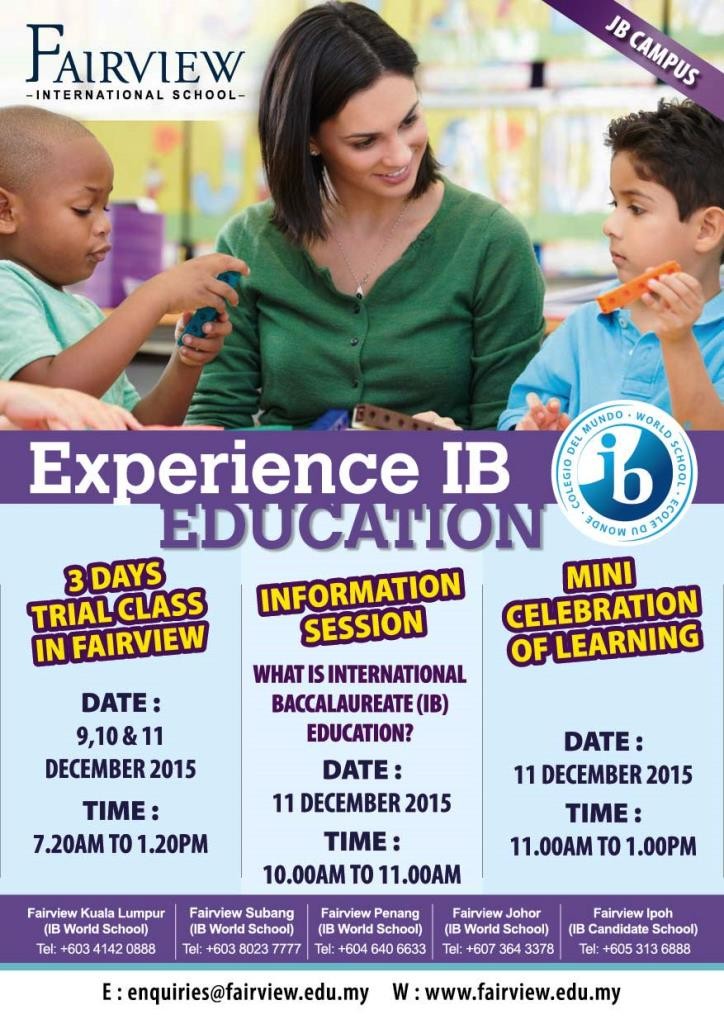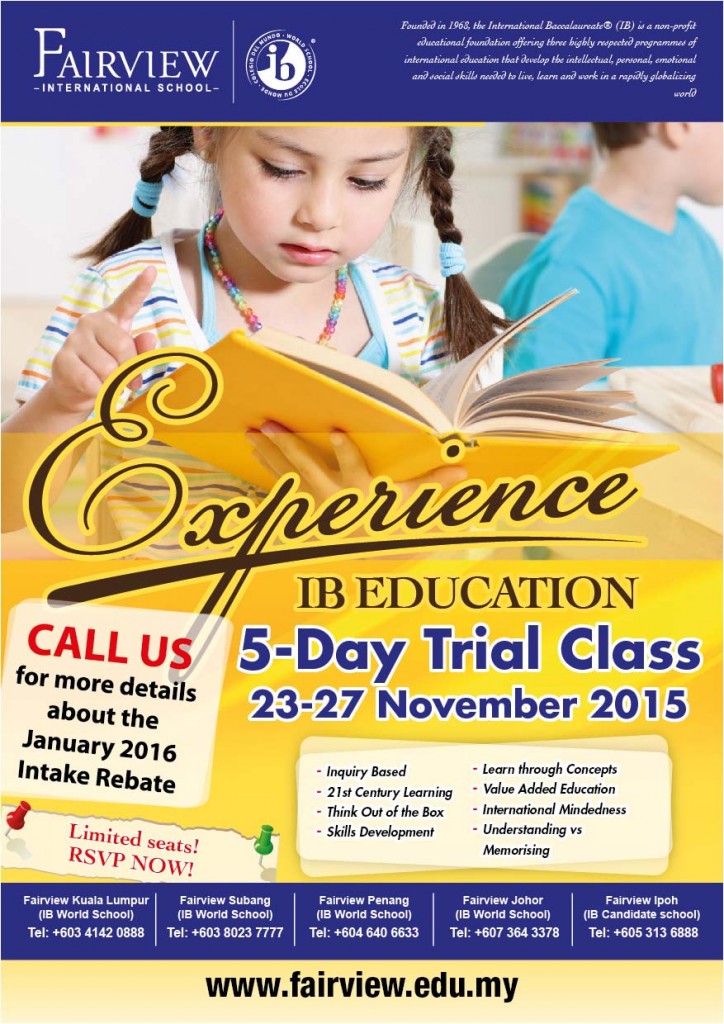Welcome To Kuala Lumpur Campus
The Kuala Lumpur campus in Wangsa Maju is the home of the first authorized IB World School in Malaysia to provide the continuum of IB programmes, PYP, MYP and DP. It is nestled just 15 minutes from the city centre, surrounded by a reserve forest that supports the learning environment with its serene and green surroundings. The campus supports the IB philosophy and students get the chance to grow in creativity and innovation.
[/su_tab] [su_tab title="What Makes Us Special"]The History of Fairview
Dedicated to providing premier yet affordable education, Fairview International School was established in 1978 for parents seeking a more enriching and comprehensive form of learning. From its humble beginnings and only a handful of students, Fairview International School is now home to over 3,000 students in four IB World Schools across Malaysia, representing over 55 different nations.
Established in 1978, Fairview was founded by a group of like-minded parents seeking greater educational opportunities for their children. Despite the schools many achievements, Fairview lacked one thing – a true home. Until 2009 the students and staff of the Kuala Lumpur campus had been uprooted several times from one location to another, for various reasons.
Since then, Fairview has grown in leaps and bounds, reaching a significant milestone of 35 years in 2014. More importantly, Fairview has inspired the minds of thousands of students over the years; students who not only achieve outstanding academic results but are nurtured socially, emotionally and physically. Our students leave the halls of Fairview as internationally minded global citizens, equipped with essential skills for the many challenges of the 21st century.
Fairview International School is the only IB World School in Malaysia to offer the continuum of IB programmes; the Primary Years Programme (PYP), Middle Years Programme (MYP) and Diploma Programme (DP).
Fairview Today
Fairview International School is a member of Fairview Global, a growing regional network of international schools dedicated to enriching learning in the Asia-Pacific region and beyond.
Since 2009 Fairview International School’s Kuala Lumpur campus is now permanently located in Wangsa Maju. This first fully-owned campus features Halls of Residence, classrooms, auditorium, playing fields, sports halls and swimming pool contained within a sprawling modern complex.
[/su_tab] [su_tab title="Message From Head Of School"]
Dr Vincent Chian (Principal of Fairview International School, Kuala Lumpur)
How we perceive a student is how we perceive tomorrow. A student is a seed of change and evolution. Fairview International School KL nurtures this process. Each student must be empowered to optimize his/her talent and potential to the fullest.
At Fairview International School KL, the students’ emotional, physical and intellectual facets are shaped with the energies of perseverance, thoughtfulness, dedication and support. A professional, empowered and motivated faculty ensures the overall growth of the student. This equips the students with an innovative and educational way of learning and in the process become the torch bearers of tomorrow.
[/su_tab] [/su_tabs]
What is the Primary Years Programme?
The PYP represents a combination of research and experience which includes excellent practices derived from a variety of national system and independent schools from around the world. It is an international transdisciplinary programme specifically designed for young learners between the ages of 3 and 12 years. The PYP focuses on the total growth of developing a child, touching hearts as well as minds and encompassing social, physical, emotional and cultural needs in addition to academic welfare. A PYP school strives towards developing an internationally minded person who demonstrates the attributes of the Learner Profile. PYP in Fairview Subang is no exception!
As of any IB candidate school, Fairview Subang had its consultant’s visit on 5th and 6th of July 2012 by IB personnel, Ms. Diane Fisk who was exclusively appointed to provide insightful input and commendations on the school’s progress. The aim of the visit is to ensure the school upholds its virtue of offering quality education to young learners who develop intellectual, personal, emotional and social skills. This was the first phase of the metamorphosis process and Fairview Subang will undergo the second phase of obtaining verification in April 2013 itself due to its success and outstanding performance during consultant’s visit.
Why the Primary Years Programme?
The PYP curriculum framework allows students to acquire essential skills in an atmosphere where deeper understanding of concepts is nurtured in the PYP. A balance is sought between acquisition of essential knowledge and skills, development of conceptual understanding, demonstration of positive attitudes and taking of responsible action.
PYP educators in Fairview Subang are committed to structured inquiry as the leading vehicle for learning; building on students’ prior knowledge and providing opportunities for students to build meaning and refine their understanding. Our students engage in purposeful meaning and understanding of the world around them. Simultaneously, they learn valuable communication and collaborative skills, so they will be able to engage fully over our ever evolving world.
The PYP is a transdisciplinary programme which is organized around six themes that are of global significance and relevance. Within each theme are Units of Inquiry (UoI) for each year level, which when combined make up our Programme of Inquiry (POI). The six PYP transdisciplinary themes are:
- Who we are
- Where we are in place and time
- How we express ourselves
- How the world works
- How we organize ourselves
- Sharing the planet
The PYP framework recognizes that individual subject areas have value in themselves and they also provide students with knowledge and skills to explore the six transdisciplinary themes. Students are made aware of the links to other areas of the curriculum in order to understand the interconnected nature of the subject areas both with one another and with the transdisciplinary themes. Furthermore, PYP students explore subject areas through the Units of Inquiry (UoI), often in ways that transcend conventional subject boundaries. In the process, they develop an understanding of important concepts, obtain essential skill, develop attitudes and learn to contribute to society. [/su_tab]
[su_tab title="Student Council"]Aim:
Student Council is a student-based civic organization designed to help promote school spirit and leadership among students. Student Council is the heart of students’ involvement and becoming aware of student needs and opinions.
Objectives:
- To emulate the IB Learner Profile, Attitudes and Global Citizenship.
- Promote good leadership qualities among students.
- Involve all students in sharing ideas to make our school the best it can be.
- Promote school spirit.
- Give all students practice in democracy in action
- Provide service to groups in our school and community.
Responsibilities:
Students must be very responsible people who are willing to work hard. As student council members you will be called to serve other students by representing their issues. The council does not have the power to change policies, only to voice student opinion
Student council involves many community minded projects
(Phase 1) School beautification. Clean up, Essential Agreement, Library duties, painting, repairing, and students led assembly
(Phase 2) Community Service. Food drives, recycling projects, Eco School project, fund raising.
[/su_tab] [su_tab title="Celebration of Learning"]Celebration of Learning
An important custom within the Fairview International School community, the Kuala Lumpur campus conducts their Primary Years Programme's Celebration of Learning every six weeks upon the completion of one unit of inquiry. Parents were guided to their child’s homeroom where students elaborated on their journey of learning in- and out of the classroom. This event is the perfect opportunity for our 21st century learners to reflect on and demonstrate their knowledge.
Through Celebration of Learning (COL) which is a students-led conference, students showcase their work not just through portfolios, but through presentations, board displays and performances – giving them a chance to exhibit their achievements in creative ways.
[/su_tab] [su_tab title="CCAs - PYP"] [/su_tab]
[su_tab title="PYP Assembly"]
[/su_tab]
[su_tab title="PYP Assembly"]
PYP ASSEMBLY
Apart from the regular assembly held every day, PYP students will be having an official assembly once a week led by PYP students. Students from different grades will take turns to present their understanding on the Unit of Inquiry being learned in the form of public speaking, poem recital, choral speaking, demonstration of an experiment, role play and many more. Celebration of cultural diversity is also evident in our assembly through presentation about a culture from a selected country. This promotes international mindedness among students as well as allowing international students to feel honoured in sharing information about their culture. So, kindly educate your child on the culture of your country as much as possible at home.
[/su_tab] [su_tab title="PYP Brain Food"]PYP BRAIN FOOD BREAK
The PYP children enjoy two break sessions- one from 9.30 am to 10.00 am and another Brain Food Break at about noon. Kindly note that only fruits, vegetables, nuts( not granola bars) and milk are permissible to be consumed during the Brain Food break as it is only for 10 minutes and students are expected to be in their class.
[/su_tab] [/su_tabs]
All four Fairview IB World Schools are authorised by the IB Organisation to deliver the IB MYP
The IB Middle Years Programme, for students aged 11 to 16, provides a framework of academic challenge that encourages students to embrace and understand the connections between traditional subjects and the real world, and become critical and reflective thinkers.
The programme :
- Encourages international-mindedness in IB students, starting with a foundation in their own language and culture.
- Encourages a positive attitude to learning by challenging students to solve problems, show creativity and resourcefulness as well as actively participating in the community.
- Reflects real life by providing a framework that allows students to see the connections among the subjects themselvess and real life issues.
- Supports the development of communication and collaboration skills to encourage inquiry, understanding, language acquisition, and to allow student reflection and expression.
- Emphasizes, through the learner profile, the development of the whole student–physically, intellectually, emotionally and ethically.
The Curriculum
Students are taught to embrace and understand connections between traditional subjects and the real world so that they become critical and reflective thinkers. Eight subject groups are integrated with five areas of interaction, creating a framework for learning within and across these subjects:
- Mother tongue.
- One second language.
- Humanities.
- Sciences.
- Mathematics.
- Arts.
- Physical education.
- Technology.
- Final year personal project.
These subjects are then organized in the curriculum through 5 areas of interaction:
- Approaches to Learning.
- Community and Service.
- Human ingenuity.
- Environment.
- Health and Social Education.
MYP CCA DESCRIPTION
[su_spoiler title="List of MYP CCA Description" style="fancy" icon="plus-circle"]| Club | Teacher | Comment |
|---|---|---|
| Badminton |
|
|
| Basketball |
|
This quarter the Basketball CCA aimed to promote sportsmanship, fairplay and leadership besides developing skills related to basketball. Students were given the chance to train their peers in specific basketball skills and apply in a tactical gameplay. |
| Football |
|
Students are able to develop their leadership, teamwork and communication skills through football. They have the opportunity to learn ad develop simple and complex skills and get to try them out in game situations. This is adapted to what the group of students need, so this changes every CCA. It is a great opportunity for someone who wants to learn more about football, but also for someone who is interested in the coaching side of football. |
| Frisbee |
|
Ultimate Frisbee aim to Promote physical, mental and social fitness and at the same time to train our students to be able to develop leadership, initiative, and teamwork amongst the members. It is also to promote the sport of Ultimate Frisbee in a competitive and sportsmanlike spirit. |
| Swimming |
|
|
| Dance |
|
|
| Skating |
|
Inline Skating in Fairview allows students to use skates on wheels to learn how to skates. Professional trained personal are in charge to provide such traning. They are to learn the art of balancing on skates and be able to move around with it. They are also undergo training to skates with different types of movement and techniques. Students also learn on how to skate with obsticles. |
| Yoga |
|
This Semester we at Fairview are pleased to offer yoga as a Co-Curricular Activity (CCA). Each class consists of sun salutations, standing and seated postures, and breathing and visualisation exercises for health and relaxation. Participants developed the IB Learner profile attributes of Balanced and Reflective by taking a break from electronic devices and external stilmuli and focusing on breath and bodily awareness. |
| Taekwondo |
|
Taekwondo lessons are tailored to the student skill level. Students begin by practicing basic patterns and forms, kicking, blocking, striking, and punching. These fundamental skills increase physical coordination, flexibility, and balance. Taekwondo emphasizes moral development as well. Students learn respect for themselves and others, heightened concentration, and increased self-discipline and self-restraint. |
| Music |
|
|
| Film |
|
Film club give students the opportunity to watch, discuss and review films. This is a fantastic launch pad for introducing young people to film, as well as boosting literacy, critical thinking. Students are activly involved in choosing the films to critique and the films are from a wide range of cultural backgrounds and teach students to respect the values of others. |
| Chinese Culture Club |
|
The Chinese Culture Club encourages students to explore the Chinese culture through Calligraphy, Chinese Chess, Chinese movies, traditional food and Beijing Opera etc. Learn how to use Mandarin to express themselves confidently, and stimulate their interest in Mandarin study at the same time. Students will learn to respect the values and traditions of others, as well as appreciate their own cultures. |
| Latin American Culture Club |
|
The Latin American Culture club comprises different aspects of culture such as food, television, music, language and heritage. In every session the students are exposed to different cultural aspects. Developing intercultural mindedness is the main objective, due to the fact that students can compare their own culture to Latin American customs and traditions, and also understand why individuals act in different ways. The also learn to appreciate other peoples and the diversity of the Latin American countries and its communities. In general, the attributes that the students put into practice through this club are: open-minded, reflective, risk-taker, and communicator. |
| Robotics |
|
Robotics Club aims to open the minds of students on Robotics Technology and teach them how to build robots. Students learn the basics of building and programming robots using Arduino & DF Robots By working together to create robots that perform exciting challenges, they also gain valuable problem-solving and team-building skills.Learning and enjoying by joining Classroom to National competitions. |
| Board Games |
|
Board games enable students to develop strategic thinking and problem solving skills. Some of the games emulate real-life situation which allow students to learn through socialisation and communication with their peers. Another important but always neglected aspect of students' well-being is to release pressure and relax after a busy day in the school. |
| Photography |
|
|
| Art |
|
|
| Cheer |
|
The cheerleading promotes sportsmanship and the spirit of teamwork. It encourage students to explore their artistic side and unleash their creativity in terms of performing skills and also athletics. Most importanly it truy supports, a healthy mind and body. keeps on in shape and stay truee to their mental and physical health. |
All four Fairview IB World Schools are authorised by the IB Organisation to deliver the IB MYP
THE DIPLOMA PROGRAMME (DP)
The IB Diploma Programme (DP) is an academically challenging and balanced programme of education with final examinations that prepares students, aged 16 to 19, for success at university and life beyond. It has been designed to address the intellectual, social, emotional and physical well-being of students. The programme has gained recognition and respect from the world’s leading universities.
The Diploma Programme prepares students for effective participation in a rapidly evolving and increasingly global society as they:
- Develop physically, intellectually, emotionally and ethically.
- Acquire both breadth and depth of knowledge and understanding, by studying courses from six subject groups.
- Develop the skills and a positive attitude towards learning that will prepare them for higher education.
- Study at least two languages, increasing their understanding of cultures and developing an international minded attitude.
- Make connections across traditional academic disciplines and explore the nature of knowledge through the programme’s unique theory of knowledge course.
- Undertake in-depth research into an area of interest through the lens of one or more academic disciplines in the extended essay.
- Enhance their personal and interpersonal development through creativity, action and service.
The Diploma Programme Core
- The extended essay asks students to engage in independent research through an in-depth study of a question relating to one of the DP subjects they are studying. The world studies extended essay option allows students to focus on a topic of global significance which they examine through the lens of at least two DP subjects.
- Theory of knowledge develops a coherent approach to learning that unifies the academic disciplines. In this course on critical thinking, students inquire into the nature of knowing and deepen their understanding of knowledge as a human construction.
- Creativity, activity, service (CAS) involves students in a range of activities alongside their academic studies throughout the Diploma Programme. Creativity encourages students to engage in the arts and creative thinking. Activity seeks to develop a healthy lifestyle through physical activity. Service with the community offers a vehicle for a new learning with academic value. The three strands of CAS enhance students’ personal and interpersonal development through experiential learning.
*For more information about DP Programme : >> Click Here << 
BE "UNCOMMON" and Be "liberated"...
“I don’t know. I really don’t know what to do. Everyone’s asking me the same question and expecting me to know!” I sigh as my student buries her face in her hands out of frustration. After 6 years of running the International Baccalaureate (IB) Diploma at Fairview, every student we meet still has the same answer to that horrible question. “What do you want to do after high school?” Students are often pressured into making a lifelong decision after they finish high school, “Science stream or Art stream? What career should I choose? What programme should I pick? Which one gets me to my goal (whatever it may be) faster?” With the average adult changing jobs 5 times before the age of 35 why do we ask our young children to narrow their options at 18?
She asks if she should pursue the A levels, with its exam-oriented approach and simple 3 subjects. She asks if she should think about a quick, one-year foundation programme (e.g. foundation in medicine) but she is worried about committing too early as they often require that you choose a tertiary programme. She asks about how her family will cope with the increasing cost of college and tertiary education.
We share with her that at this age she should be thinking about becoming an educated adult, not getting ready for a profession. We share with her that she needs to develop a strong character, acquiring essential life skills and finding out more about the world. We share with her that the real question she has to answer is “What great problem could I dedicate my life to solving?” We advise her that she shouldn’t rush this choice, that she has over 40 years of working life to figure out her professional career and that the uncertainty never ends. We advise her to apply for the International Baccalaureate Diploma Programme (IBDP) scholarship at Fairview International School.
Founded in 1968, the IB Diploma is a 2-year programme that has rapidly gained recognition internationally. American Universities like Harvard, Stanford and Duke have repeatedly stated they prefer the IB Diploma. Research by the UK government conclusively proved that IB DP students are twice as likely to be admitted to the top 10 universities in the UK as compared to A level students. University feedback confirms that IB Diploma students are academically strong if not stronger than others in traditional rote learning programmes, but come prepared with an array of life skills and often possess a great sense of purpose characterised by their love for humanity.
The IBDP provides an “UNFAIR” advantage to students when competing for university placements and career paths. We share with the student that the IB Diploma student is different from other pre-university students. That they have a sense of purpose and are driven to succeed. We share that the IB Diploma student yearns to be different from many other students, uniquely equipped with the transferable skills to succeed in an unknown future full of uncertainties. We share with her that the programme allows students to discover and develop confidence in who they are, what do they believe in and how to continually refine their character in their future. We ask her “what does she want from her college education? A quick fix certificate to congratulate her on how well she can fill in an exam paper? Or to become an “Uncommon” student of the world, filled with purpose, strong of character and skilled.
Over the last 5 years, Fairview International School has offered over RM 1.2 million in scholarships every year for students to pursue the IBDP programme. In 2015, the IB Diploma at Fairview achieved an average of 36 points out of a maximum 45 points, amongst the highest scores in the world.
Find out how you can transform your life with the IB Diploma at Fairview and “BE UNCOMMON”. Apply now through our website at www.fairview.edu.my or email leo@fairview.edu.my. You may also call at 03 4142.0888 for more details.
[/su_tab] [/su_tabs]

